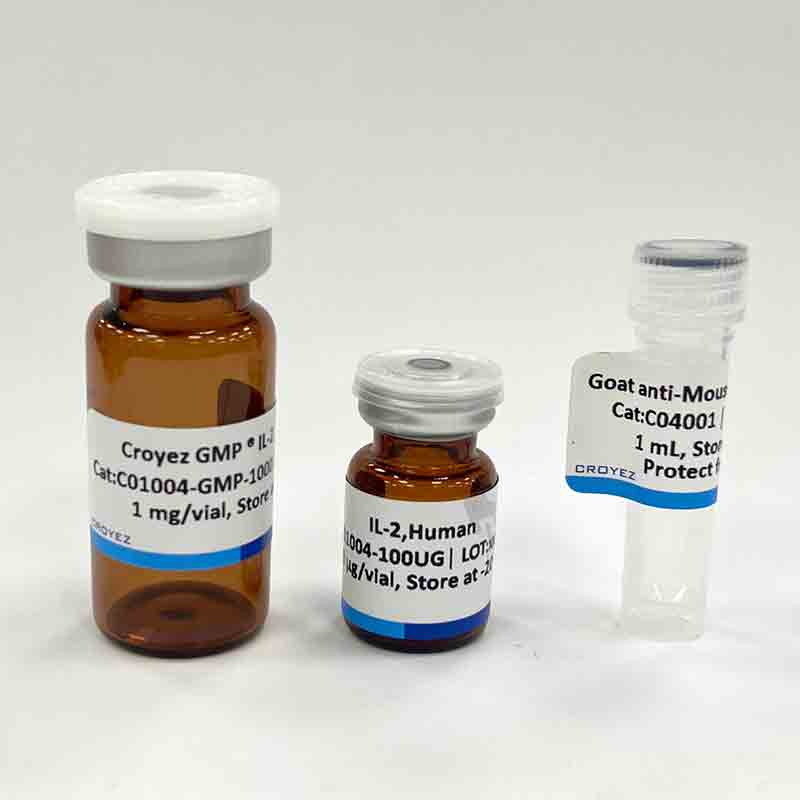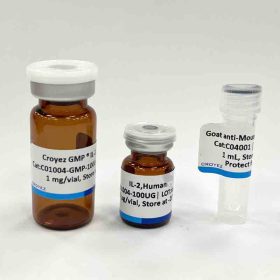Bone morphogenetic proteins (BMPs) are a group of growth factors also known as cytokines and as metabologens. Originally discovered by their ability to induce the formation of bone and cartilage, BMPs are now considered to constitute a group of pivotal morphogenetic signals, orchestrating tissue architecture throughout the body. The important function of BMP signals is emphasized by the multitude of roles for dysregulated BMP signaling in pathological processes. The cancerous disease often involves misregulation of the BMP signaling system. BMP-16 protein, like other bone morphogenetic proteins, plays an important role in the development of bone and cartilage.
Sequence:
MHHLPDRSQLCRKVKFQVDFNLIGWGSWIIYPKQYNAYRCEGECPNPVGEEFHPTNHAYIQSLLKRYQPHRVPSTCCAPVKTKPLSMLYVD
NGRVLLDHHKDMIVEECGCL with polyhistidine tag at the C-terminus
Source:
Escherichia coli
Endotoxin Test:
<0.1 EU per 1 μg of the protein by the LAL method.
Activity:
Measure by its ability to induce alkaline phosphatase production by ATDC5 cells. The ED50 for this effect is <2.2 ng/mL.
Purity:
>98% as determined by SDS-PAGE. Ni-NTA chromatography
Formulation:
The protein was lyophilized from a solution containing 20 mM sodium citrate, 0.2 M NaCl, pH 3.5.
Reconstitution:
It is recommended to reconstitute the lyophilized protein in sterile H2O to a concentration not less than 100 μg/mL and incubate the stock solution for at least 20 min to ensure sufficient re-dissolved.
Storage:
Lyophilized protein should be stored at -20°C. Upon reconstitution, protein aliquots should be stored at -20°C or -80°C.
Note:
Please use within two weeks after protein reconstitution.





